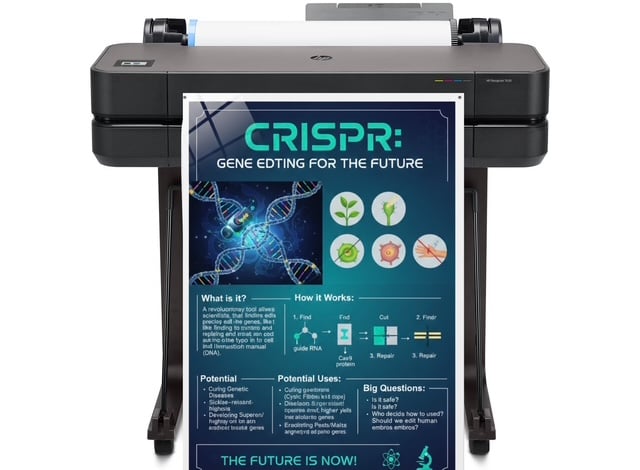
DISCOUNTED EDUCATION PRICING! CALL 1-877-891-8411. We Gladly Accept School Purchase Orders!

In today’s fast-paced world, students juggle packed schedules—classes, extracurriculars, part-time jobs, and social lives leave little time for deep study sessions. But what if you could boost your grades with just 10 minutes a day? This blog post delivers practical, bite-sized learning hacks designed for busy students. These evidence-based strategies, from active recall to tech tools, will help you study smarter, not harder. Whether you’re a high schooler prepping for exams, a college student tackling tough courses, or a lifelong learner aiming to retain more, these tips will transform your approach. Let’s dive into the hacks that can elevate your academic game in just 10 minutes daily.
Micro-learning—short, focused bursts of study—has been shown to improve retention and reduce burnout. A 2018 study in Learning and Memory found that brief, spaced-out learning sessions enhance long-term recall compared to cramming. By dedicating just 10 minutes daily, you can leverage this science to maximize efficiency. These hacks are designed to fit into your busiest days, whether you’re sneaking in study time between classes or before bed. Plus, they’re flexible enough to work across subjects, from math to literature.
What It Is: Active recall involves testing yourself to retrieve information without looking at notes. It’s one of the most effective study techniques, backed by research from Psychological Science (2011), which shows it strengthens memory more than passive review.
How to Do It:
Why It Works: Active recall builds stronger neural connections, making it easier to remember during exams. In 10 minutes, you can cover 20–30 flashcards, enough to solidify key concepts. Read more about the Top 10 Educational Apps for Students.
Pro Tip: Use “spaced repetition” by reviewing cards you struggled with the next day. Apps like Anki automate this scheduling.
What It Is: Named after physicist Richard Feynman, this technique involves explaining a concept in simple terms, as if teaching it to a child. It exposes gaps in your understanding and boosts retention. The Feynman Technique is an amazing study hack.
How to Do It:
Why It Works: Simplifying forces you to process the material deeply, as shown in a 2014 study in Memory & Cognition. It’s perfect for subjects like science or history where concepts build on each other.
Pro Tip: Record your explanation as a voice memo and listen back to spot weaknesses.
What It Is: Time-blocking allocates specific tasks to short time slots, minimizing distractions. It’s a productivity hack used by top performers to stay laser-focused.
How to Do It:
Why It Works: A 2017 study in Frontiers in Psychology found that focused, time-limited sessions improve task completion and reduce procrastination. This hack keeps your 10 minutes productive.
Pro Tip: Pair this with a reward, like a quick stretch or a favorite song, to stay motivated.
Technology can supercharge your 10-minute study sessions. Here are three free or low-cost tools and how to use them:
Why It Works: Tech tools streamline learning, making it easier to access high-quality explanations or organize your study plan. A 2020 study in Educational Technology Research found that digital tools boost student engagement.
Pro Tip: Follow X accounts like @KhanAcademy or @CrashCourse for daily micro-lesson posts to inspire your 10-minute sessions.
What It Is: Mind mapping visually organizes information, connecting ideas to improve comprehension and recall. It’s ideal for visual learners.
How to Do It:
Why It Works: A 2016 study in Educational Psychology Review showed that visual mapping enhances memory by linking concepts. It’s great for essay-based subjects like history or literature.
Pro Tip: Use colors to differentiate ideas—it makes the map more memorable.
What It Is: Stress can derail learning, so a quick mindfulness exercise can reset your focus. This hack combines breathing and visualization.
How to Do It:
Why It Works: A 2019 study in Nature found that brief mindfulness exercises reduce anxiety and improve focus. This hack preps your brain for efficient studying.
Pro Tip: Use apps like Headspace for guided 3-minute meditations if you’re new to mindfulness.
Different subjects require tailored approaches. Here are three 10-minute hacks for common subjects:
Why It Works: Subject-specific hacks target unique challenges, like formulas in math or analysis in humanities, making your study time hyper-relevant.
Pro Tip: Post your favorite subject-specific hack on X with #StudyHacks to connect with other students and drive traffic to your blog.
To maximize these hacks, combine them strategically. For example:
Rotate hacks weekly to keep your routine fresh. Share your progress on X (e.g., “Just nailed 10-minute study hacks for biology! 🌟 #StudentLife”) to build a community and drive blog traffic.
To make these hacks stick, create a simple study planner. Use Notion or Google Sheets to list daily tasks, track your 10-minute sessions, and note what worked. Share a template link on your blog to boost engagement. For example:
These strategies aren’t just quick fixes—they’re rooted in cognitive science and productivity research. By focusing on active learning, organization, and stress management, you’ll retain more and perform better under pressure. Plus, their bite-sized nature makes them sustainable, even during your busiest weeks. Edtech hacks help discover better ways of learning.
Pick one hack and try it for 10 minutes right now. Whether it’s quizzing yourself with flashcards, explaining a concept, or sketching a mind map, you’ll feel the difference. Share your favorite hack on X with #StudyHacks to inspire others and check out grok.com for instant answers to tricky study questions. With just 10 minutes a day, you’re not just studying—you’re building a smarter, more confident academic future. Bitesized learning is the way to go!